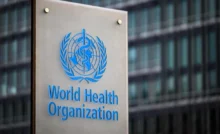In recent years, alcohol-related cancers have become a growing health concern in India, with experts pointing to alarming trends and a pressing need for action. Alcohol consumption is directly linked to several types of cancers, and the numbers associated with alcohol-induced cancer cases are on the rise in India, alarming both health professionals and the general public. The World Health Organization (WHO) has classified alcohol as a Group 1 carcinogen, which places it in the highest risk category, along with substances like asbestos, tobacco, and radiation. This categorization has highlighted the significant health risks posed by alcohol consumption, particularly in relation to cancer.
Alcohol as a Carcinogen: A Global and Indian Perspective
According to Dr. Puneet Garg, a Vascular Interventional Radiologist and Endovascular Surgeon at Safdarjung Hospital in New Delhi, alcohol consumption increases the risk of more than 20 types of cancers. Among the most common cancers linked to alcohol are those of the mouth, throat, food pipe, stomach, colon, rectum, pancreas, and breast (in women). Alcohol is also a risk factor for prostate cancer in men. The toxic compound that alcohol metabolizes into—acetaldehyde—can damage DNA and proteins, causing mutations that trigger the development of cancer.
In India, alcohol-related cancers are increasingly prevalent. Dr. Taraprasad Tripathy, an Assistant Professor at the All India Institute of Medical Sciences in Bhubaneswar, emphasizes that alcohol impairs the body’s ability to absorb essential nutrients like folate and vitamins A, C, D, and E, which are crucial for maintaining healthy cells and preventing the formation of cancerous cells. This impaired nutrient absorption, coupled with the direct carcinogenic effects of alcohol, contributes significantly to the rise in alcohol-related cancers in the country.
Statistics and Growing Concerns in India
Alcohol consumption is a significant contributor to the global burden of cancer. According to the WHO, nearly 4% of all cancers diagnosed worldwide are attributed to alcohol use. A recent study published in The Lancet journal estimates that alcohol consumption was responsible for approximately 62,100 new cancer cases in India in 2020 alone. This statistic highlights the growing issue of alcohol-induced cancers in a country that has long had a complicated relationship with alcohol use. While alcohol consumption has historically been part of social rituals in many regions, its association with serious health risks has only recently been brought into sharper focus.
The health crisis is compounded by the fact that alcohol-related cancers often go undetected until they have reached advanced stages. This makes the need for early detection even more urgent. Dr. Garg highlights that the prognosis for individuals diagnosed with alcohol-induced cancers can be significantly improved if detected early. However, cancers that are diagnosed at later stages, especially those linked to alcohol consumption, are often harder to treat and manage.
The Mechanisms Behind Alcohol’s Cancer-Causing Effects
Alcohol’s carcinogenic effects are due to several mechanisms that make it a particularly dangerous substance for the development of cancer. When alcohol is consumed, it is metabolized into acetaldehyde, a highly toxic compound. Acetaldehyde is recognized as a potent carcinogen that can directly damage cellular DNA, causing mutations that trigger cancer development. This process is especially harmful to cells in the mouth, throat, food pipe, and liver, where alcohol is primarily metabolized.
Furthermore, alcohol can increase the permeability of the digestive tract, which may allow harmful substances to enter the bloodstream. This makes it easier for carcinogens to reach vital organs, such as the stomach, liver, and intestines, increasing the likelihood of cancer development in those areas.
Alcohol consumption also has a detrimental effect on the immune system, weakening the body’s ability to identify and destroy abnormal cells, including cancerous cells. This immunosuppressive effect can significantly contribute to the development and progression of cancers.
Specific Alcohol-Related Cancers and Their Warning Signs
Different types of cancers linked to alcohol consumption present distinct early warning signs. Recognizing these signs early can significantly improve outcomes, as many alcohol-related cancers can be successfully treated when diagnosed in their initial stages.
- Oral and Pharyngeal Cancer: Alcohol consumption is a major risk factor for oral and pharyngeal cancers. Early symptoms may include persistent mouth sores, unexplained bleeding, difficulty swallowing, or a sore throat that does not heal. A lump or thickening in the cheek is also a common indicator of these cancers.
- Esophageal Cancer: This type of cancer, which affects the food pipe, is often associated with chronic alcohol use. Symptoms include difficulty swallowing, chest discomfort, unintended weight loss, chronic cough, and hoarseness.
- Liver Cancer: Liver cancer is strongly linked to alcohol consumption, especially in individuals who have a history of heavy drinking. Symptoms include abdominal swelling, jaundice (yellowing of the skin and eyes), unexplained weight loss, loss of appetite, and fatigue.
- Breast Cancer: In women, alcohol consumption increases the risk of breast cancer. Early warning signs include a lump in the breast or underarm, changes in breast shape or size, dimpling of the skin, or nipple discharge.
- Colon and Rectal Cancer: Alcohol is also a known carcinogen for cancers of the colon and rectum. Symptoms may include unexplained changes in bowel habits, persistent abdominal pain, and blood in the stool.
- Pancreatic Cancer: Chronic alcohol use can increase the risk of pancreatic cancer, which often has vague symptoms. These may include abdominal pain, unexplained weight loss, jaundice, and new-onset diabetes.
The Importance of Early Detection and Regular Screenings
The key to improving survival rates for individuals diagnosed with alcohol-related cancers lies in early detection. When cancer is caught at an early stage, the chances of successful treatment and remission are significantly higher. In the case of alcohol-induced cancers, this can be a matter of life and death. Dr. Garg stresses the importance of early detection in managing these cancers effectively. Regular screenings and prompt medical attention are essential for individuals, especially those at high risk, to catch potential cancers before they progress to advanced stages.
Moreover, doctors recommend that people who consume alcohol, especially those who drink heavily or regularly, undergo routine check-ups to monitor for any early signs of cancer. Regular screenings for oral, breast, liver, and colon cancers can catch any changes in the body before they become life-threatening.
Reducing Alcohol Consumption: A Proactive Measure
One of the most effective ways to reduce the risk of alcohol-related cancers is to lower alcohol consumption. The WHO emphasizes that no amount of alcohol is completely safe, as even moderate drinking can increase the risk of cancer. Dr. Tripathy suggests that reducing alcohol intake is a proactive measure that everyone can take to minimize their cancer risk.
Public health campaigns have started to advocate for a reduction in alcohol consumption and for providing individuals with information about the risks of alcohol-induced cancers. The WHO has recommended labeling alcoholic beverages with health warnings related to cancer risk, a suggestion that has garnered support from various health professionals.
Raising Awareness and Promoting Prevention
The growing prevalence of alcohol-related cancers in India calls for increased awareness and a collective effort to reduce alcohol consumption. While more research is needed to fully understand the extent of the problem, the evidence is clear that alcohol is a significant carcinogen. Public health initiatives that emphasize the risks of alcohol consumption, along with strategies to reduce alcohol intake, can help curb the rise in alcohol-related cancers.
At the individual level, making informed decisions about alcohol consumption and seeking early medical attention when symptoms arise can go a long way in reducing the impact of alcohol-related cancers. Regular screenings, preventive measures, and early detection are vital components in fighting this growing public health issue. With awareness and proactive measures, it is possible to reduce the incidence of alcohol-related cancers and improve the overall health of the population.










